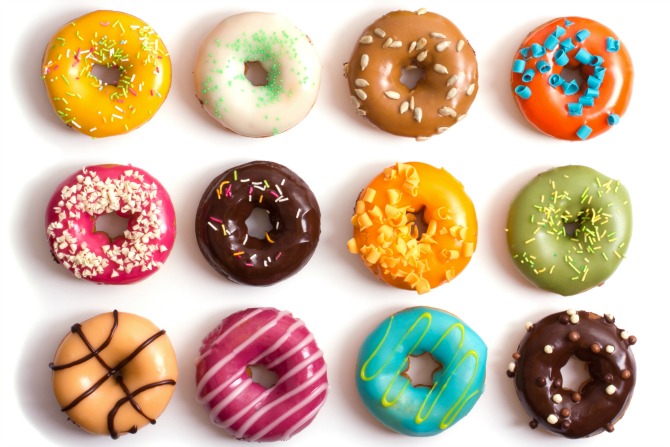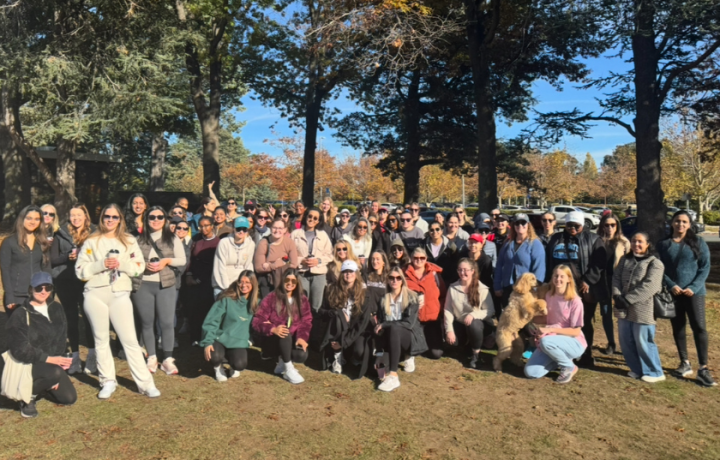How to Stop Feeling Guilty About Food

Posted on
“I ate sticky date pudding and ice cream last night, I’m so bad!”
“I ate lots of bad food over the weekend, I’m really naughty.”
“I ate half a block of chocolate yesterday, I feel so guilty.”
I grew up with this kind of language as the norm, but as someone who’s spent their entire career helping people lose weight and eat better, I’ve come to learn that food judgment (and the subsequent guilt that comes with it) is a ludicrous and completely unhelpful way to approach improving your daily eating habits.
Did you kill somebody? Did you steal a lip smacker? Did you tell your neighbour’s kid that Santa Claus isn’t real? No? You’re not naughty.
All you did was eat something that you or someone else deemed ‘unhealthy’ or incompatible with weight loss. That’s it.
The truth is: Food holds no moral value. It’s not right or wrong. It’s just food. Food contains varying amount of nutrients and some foods are more nutrient dense than others, but it’s your diet as a whole, a combination of different foods, not individual foods themselves that makes us healthy.
Also, the bread, chocolate or *insert any food* you ate wasn’t why you didn’t lose weight. It was because you didn’t create a consistent energy deficit over time that you didn’t lose weight.
All the foods you ate contributed to your total energy intake, some more than others, however, it was your totally daily habits over weeks and months that contributed to your health (or weight), not the individual foods that you ate in one moment.
I believe that we feel guilty when we eat certain foods for two reasons:
- Diet culture has created a myriad of food rules that, of course, make you feel guilty when you break them, as do most rules.
- You’re frustrated that you’re contradicting yourself. You’re in conflict. You want to eat one way and find yourself doing the complete opposite!
The fact of the matter is, you can’t make drastic changes to your eating habits overnight and setting yourself strict food rules and completely cutting out foods or activities because they’re ‘bad’ will only make matters worse.
You’ll just set yourself up with unrealistic expectations that you can’t meet, which then, makes you feel more guilty!
You need to commit to creating food habits, that at their core are choices you make considering both your current situation and your future needs.
Here are my top tips for ditching food guilt:
Stop talking about foods as being good and bad
You didn’t eat s**t. You ate Shapes, chocolate cake and a can of Coke. You didn’t eat rubbish. You ate hot chips, ice cream and pizza. You ate food.
By calling these foods ‘s**t’ and ‘rubbish’ you can’t help but make yourself and others feel guilty when they’re eaten. What kind of person knowingly fills their body with rubbish? See what I mean? It makes you feel awful!
You’ll continue to feel guilty about eating certain foods if you keep labelling them as ‘bad’. They’re not bad, They’re just not as nutritious as other foods. Simple as that.
Take responsibility for your food choices
Ultimately, it’s your choice what you eat. We love fad diets because then we can say: The diet says I can’t eat ‘X’ or my meal plan says I can only eat ‘Y’. You’re a grown adult, you can eat whatever you want. Put the power back in your court and stop relinquishing it to a food rule or diet plan.
Now, I know that making healthy choices consistently isn’t easy. If you’re struggling with making healthy food choices due to barriers such as being busy, time poor or confused about nutrition, your next best step is to start developing the skills required to help you overcome these barriers. These skills include meal planning, bulk food prep, keeping the freezer stocked with back up meals and having quick ideas that you can grab at a supermarket.
Ditch perfection
There is no such thing as the perfect diet. There are simply key nutrition principles that if put into practice can promote health over time. And there are hundreds of different ways that they can be put into practice!
Take the pressure off yourself by trying to stick to a day of food that’s unrealistic for you. Instead, find small ways that you can include healthy foods into your diet and do it consistently. Here’s an example:
A key nutrition principle is eating vegetables every day. The application of that principle is consuming 4-5 cups of a variety of non-starchy vegetables each day. The habits required every day may include:
- Every 2-3 days you cut up cucumber, capsicum, tomato and lettuce and have a side salad ready to go for lunches and dinners
- You keep bags of steam fresh vegetables in the freezer
- You grab a bag of pre-cut coleslaw and serving it up with your takeaway pizza
- You add a handful of baby spinach to your morning smoothie
- You add carrot, zucchini and mushrooms to mince dishes like shepherds pie and spaghetti bolognese
- You cut up carrot sticks (and other vegetables) and serve with hummus for snacks
You could choose to go, “boring”, with the advice above. Or you can work on consistently applying these skills and building other key habits into your life so that you’re a healthy eater in the long term, not just a perfect healthy eater for eight weeks…
Add in foods, rather than cutting them out
Take a positive approach to your nutrition. Focus on what to eat, rather than what not to eat.
Whole foods are foods that have had minimal processing between the farmer and you. They are more nutritious, contain a more appropriate amount of energy for our bodies’ needs and help give our bodies the tools they need to feel full and satisfied on a smaller amount of energy. They are the best place to start!
- Add in vegetables: salads, steamed, sticks, soups, smoothies, stews
- Add in fruit: snacks, breakfast, dessert
- Add in nuts and seeds: snacks, salads, breakfast
- Add in legumes: lentils, chickpeas, beans
- Add in meat, poultry, seafood: swap out processed options
- Add in dairy: milk, yoghurt
If you fill up on whole foods first, you’ll have less room for less nutritious foods and you’ll start to be able to tune into your body’s fullness cues.
Plus, it’s much much easier to DO something, that to NOT DO something.


Leave a Reply
You must be logged in to post a comment.